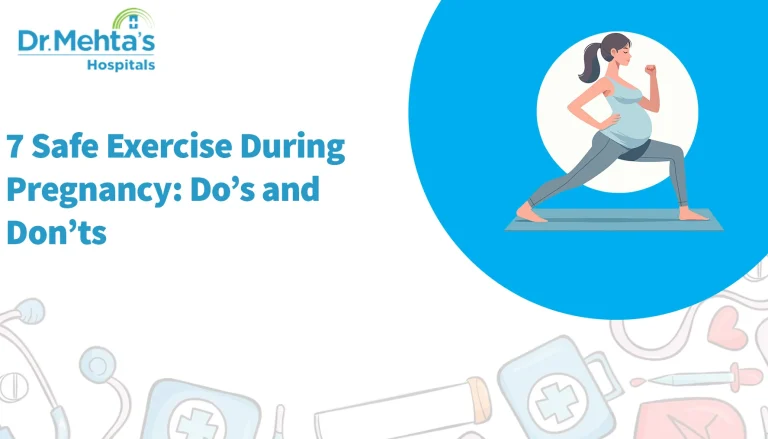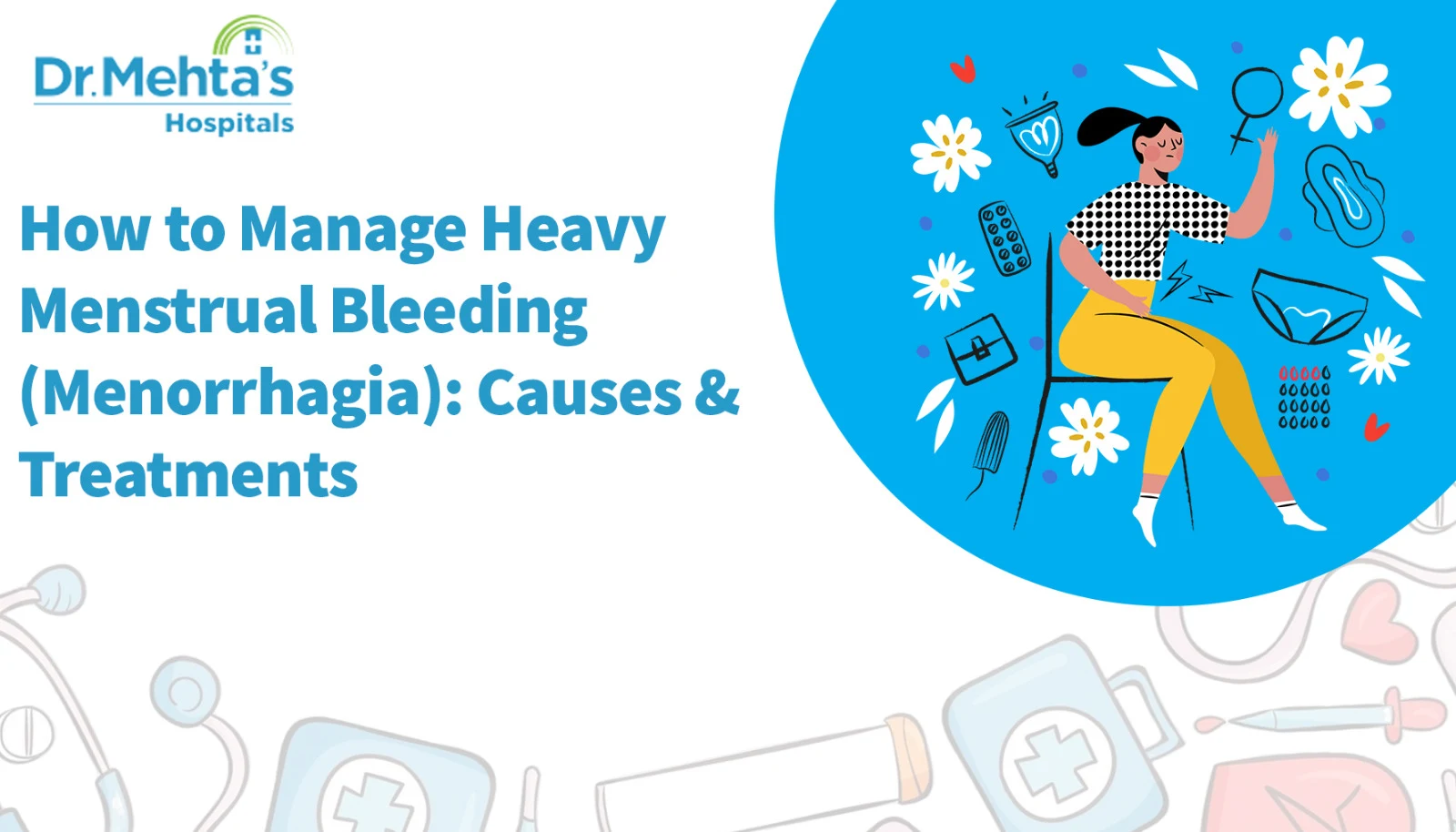
Table of Contents

Most women experience changes in their menstrual flow at some point, but in some cases, it becomes heavier and lasts longer than usual. This condition is known as menorrhagia, or heavy menstrual bleeding, and it can affect daily life and cause discomfort. The good news: it can be managed with the right awareness and treatment.
Menorrhagia refers to persistent or excessive bleeding during menstruation that lasts more than seven days or requires frequent pad or tampon changes. It may be linked to hormonal shifts, underlying health conditions, or certain medications. Early diagnosis and lifestyle care can help prevent fatigue, anemia, and daily distress.
India has over 355 million menstruating women, and nearly 6 out of 10 may require medical attention at some point to manage heavy periods.

Heavy bleeding can occur due to a mix of hormonal issues and structural conditions. Understanding the cause helps doctors recommend the right treatment and lifestyle changes.
| Cause Category | Common Examples | How It Leads to Heavy Bleeding | Common Symptoms |
| Hormonal Imbalance | PCOS, thyroid disorders, perimenopause | Thickening of the uterine lining due to estrogen-progesterone imbalance | Irregular cycles, acne, mood swings, weight changes |
| Uterine Conditions | Fibroids, polyps, endometrial hyperplasia | Increase uterine tissue and blood flow | Pelvic pain, bloating |
| Medical Disorders | Thyroid disease, bleeding disorders | Affects clotting and hormone regulation | Excessive fatigue, prolonged bleeding |
| Stress and Lifestyle | Stress, poor nutrition, sedentary habits | Hormonal fluctuations and nutrient deficiencies | Headache, irregular flow, low energy |
The National Health Portal of India reports that 18 to 20 percent of women experience heavy menstrual bleeding.
When lifestyle changes aren’t enough, medical treatment may help control or reduce heavy bleeding. Treatment depends on the cause, severity, and overall health. So, how to stop heavy bleeding during periods home remedies? Here are some treatment types that you must know:
| Treatment Type | Example | Purpose |
| Hormonal Therapy | Birth control pills, hormonal IUDs | Regulates cycles and reduces flow |
| Non-Hormonal Medication | Tranexamic acid, NSAIDs | Reduces bleeding and pain during periods |
| Thyroid Management | Medication for hypothyroidism | Restores hormonal balance and controls cycle length |
| Iron Supplements | Tablets or dietary iron foods | Prevents anemia due to blood loss |
| Surgical Options (in severe cases) | Endometrial ablation, myomectomy (for fibroids) | Reduces the uterine lining or removes growths |
To receive safe and assisted treatment, gynecology experts in Chetpet, Chennai, at Dr. Mehta’s Hospitals provide all-around support in relation to the health of women.
Certain lifestyle changes may help ease symptoms and support cycle balance. These can work alongside medical treatments. How to stop heavy bleeding during periods naturally? Here are some efficient ways:
These may not work for everyone. Always consult an Experienced Gynecology Hospital before trying new diets or natural remedies.
Do not ignore heavy bleeding that affects your daily life. See a doctor if:
Our skilled gynecologists in Velappanchavadi offer personalized evaluations and advanced diagnostic support.
Heavy menstrual bleeding can be challenging, but with timely diagnosis and proper care, it can be effectively managed. Whether the cause is hormonal, lifestyle-related, or structural, maintaining good nutrition, managing stress, and seeking regular check-ups can help protect long-term reproductive health.
At Dr. Mehta’s Hospitals, a leading multispeciality hospital in Chennai, our specialists provide personalized gynecological care and compassionate support. If you’re experiencing heavy menstrual bleeding, reach out to begin your journey toward better health.
FAQs
Table of Contents
Recent Post
About us
Dr. Mehta’s Hospitals is a leading multispecialty hospital in Chennai with over 90 years of excellence. With 400+ beds and 80+ specialties, its Chetpet and Velappanchavadi centers offer advanced, state-of-the-art, compassionate care under one roof.
Chetpet Contact Details
Velappanchavadi Contact Details
Feel free to ask your queries on
Our Specialities
About us
Dr. Mehta’s Hospitals is a leading multispecialty hospital in Chennai with over 90 years of excellence. With 400+ beds and 80+ specialties, its Chetpet and Velappanchavadi centers offer advanced, state-of-the-art, compassionate care under one roof.
Chetpet Contact Details
Velappanchavadi Contact Details
Feel free to ask your queries on
Our Specialities
Quick Links
Center Of Excellence